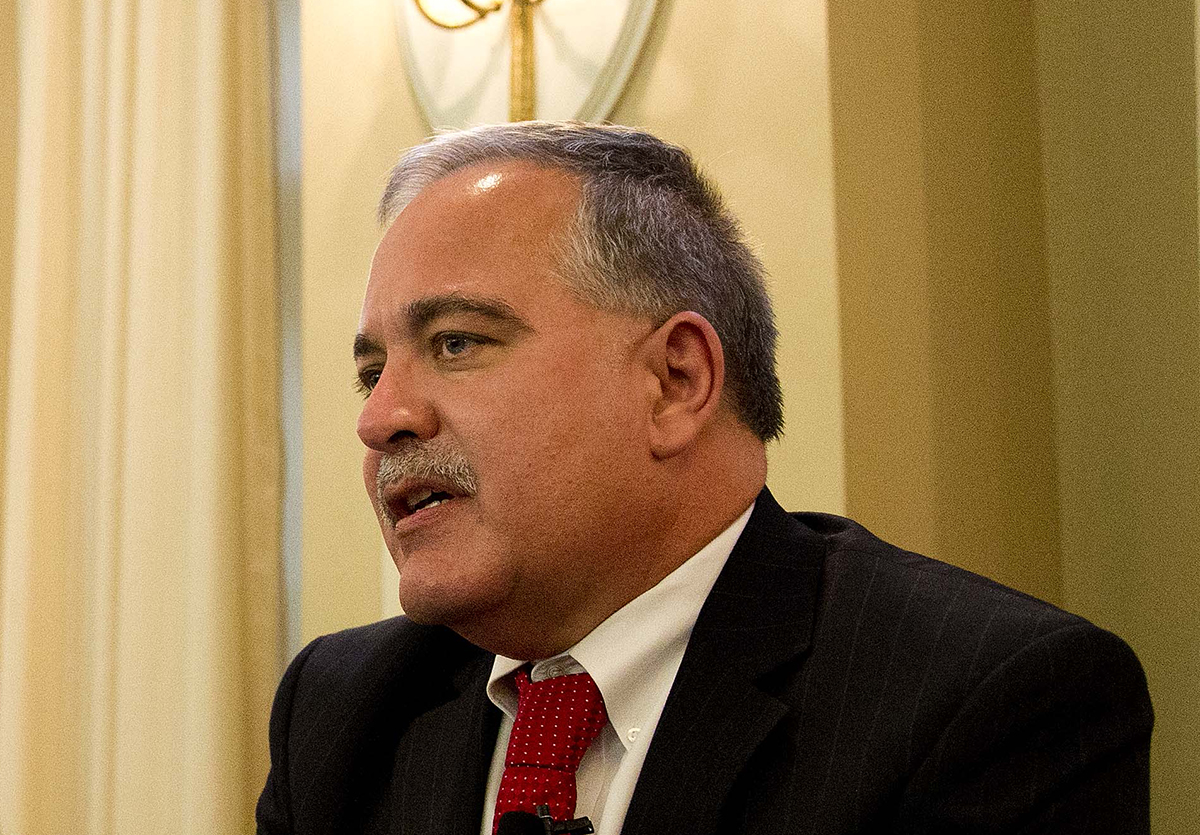Math may start to look more traditional at some Georgia schools, because new state School Superintendent Richard Woods wants to let school districts be able to choose between new "integrated" math and more traditional "discrete" math instruction.
Integrated math classes combine such subjects as algebra, geometry and statistics, instead of breaking them up into separate, or discrete, courses.
Georgia first adopted integrated math in 2008, when Math I, II and III replaced geometry and algebra.
But integrated math hasn't won popularity contests. A Georgia Board of Education survey released in September found that 84 percent of math teachers who responded didn't like it.
Former state school superintendent John Barge, who stepped down last year for an unsuccessful run against Gov. Nathan Deal in the Republican primary, made a move toward traditional math in 2012.
That's when the state did away with Math I, II and III and adopted more traditional courses that still aligned with the Common Core standards Georgia adopted that year. Georgia ninth-graders now take coordinate algebra, 10th-graders learn analytic geometry and 11th-graders study advanced algebra.
Woods, a Republican who took office this month, wants to let school districts teach even more traditional math.
"He has really pushed for this. This is something that he has really been a proponent of," Georgia Department of Education spokesman Matt Cardoza said. "He did campaign against a lot of the ideas behind Common Core.
"There's a lot of clamor for this. A lot of our districts have expressed a desire to have this choice," said Cardoza.
The state board will vote on whether to allow the choice at its Feb. 19 meeting. The matter is open for public comment now.
Area educators still deciding
Educators at Chattanooga-area Georgia school districts aren't yet sure if they'll switch back to the more traditional math instruction or stick with what they're using now.
"We've started discussion on what would be best for our students," said Sandy Bradley, the math coach for Dade County Schools. "We'll be taking it very seriously."
Dade County Schools has a "Math Matters" campaign that aims to improve math scores district wide and make learning math a fun, high-profile community endeavor through such efforts as broadcasting a student-created math problem on local television and radio each weekday so community members can call in answers.
Parents who learned traditional math are part of the backlash against the integrated math courses, said Bradley.
"I think they get frustrated if they're not able to help their child," she said. "Parents don't understand it [integrated math]."
Meanwhile, most Dade County teachers feel there's a "real power" in teaching conceptually, Bradley said, which is what Common Core standards are meant to achieve.
"Personally, I think Common Core is good. Most of the teachers do," she said.
Dade County Schools bought new math textbooks in the fall of 2013, at a cost of about $80 each, for its kindergarten through 11th-grade students, said Bradley. But that investment shouldn't prevent the district from making a switch, she said.
"We'll want to do what's best for the students and try not to let money come into play," Bradley said.
Catoosa County Schools spokeswoman Marissa Brower said school officials there haven't made any decisions about the potential to teach math in a more traditional style.
"At this point in time, we're just receiving all the information," Brower said. "We participate in a webinar next week."
Officials at Walker County Schools didn't return calls seeking comment.
Contact staff writer Tim Omarzu at tomarzu@timesfreepress.com or www.facebook.com/tim.omarzu or twitter.com/TimOmarzu or 423-757-6651.

